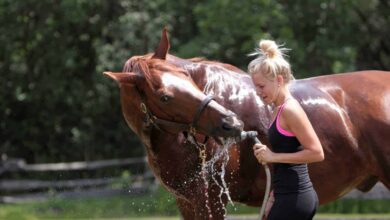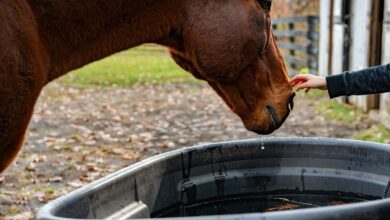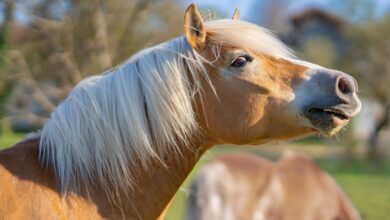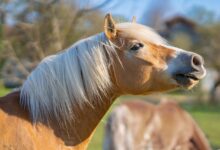by Al Badia,
The thrill of horse racing is an age-old spectacle that has captivated humanity for centuries. As a sport that combines athleticism, strategy, and the beauty of horses, it has an enduring appeal that continues to attract millions of fans and bettors around the world. At the heart of every horse race is, of course, the magnificent equine athlete – the horse. So, how does a horse achieve success in a horse race?
First and foremost, a horse’s natural ability and athleticism play a crucial role in its performance on the track. Horses are born with different genetic traits that influence their speed, stamina, and overall physicality. Breeding plays a significant role in producing horses with the desired traits for racing. Thoroughbred horses, for example, are specifically bred for their speed and agility, making them ideal for flat racing. Other breeds like Quarter Horses are known for their explosive speed over short distances, making them suitable for sprint races.
However, it’s not just genetics that determines a horse’s success in a race. Proper training and conditioning are vital to hone a horse’s physical abilities to their fullest potential. Trainers work tirelessly to develop a horse’s strength, speed, and endurance through a combination of exercise, diet, and specialized training techniques. Regular workouts on the track, including galloping, breezing, and timed workouts, help horses build their cardiovascular fitness, muscle strength, and coordination. Training programs are tailored to each horse’s unique needs and abilities, taking into account factors such as age, health, and temperament.
Furthermore, the jockey, who rides and guides the horse during the race, also plays a critical role in a horse’s performance. Jockeys are skilled athletes who bring years of experience, strategy, and finesse to each race. They communicate with the horse, read its body language, and make split-second decisions during the race to position the horse for success. Jockeys are responsible for managing the horse’s speed, conserving its energy, and timing their moves to perfection. A skilled jockey can make all the difference in a race, maximizing the horse’s potential and giving it the best chance to win.
Lastly, luck can also play a role in a horse’s performance in a race. Factors such as track condition, weather, post position, and the behavior of other horses in the race can all impact the outcome. A well-prepared horse can mitigate some of these factors through its training and conditioning, but ultimately, luck is an unpredictable variable that can influence the race.
In conclusion, a horse’s success in a horse race is a culmination of various factors. Natural ability and genetics lay the foundation, but proper training, conditioning, mental preparation, and the expertise of the jockey are equally crucial. Luck also plays a role, but it’s the combination of all these factors that determines a horse’s performance on race day. As fans of this magnificent sport, we marvel at the incredible athleticism, grace, and power of these equine athletes, and appreciate the meticulous effort and dedication that goes into achieving success in a horse race.
#albadiamagazine #horselovers #animal #horserace #horseracing #horse #equestrian #horses #horseriding #equine #horsesofinstagram #equestrianlife #showjumping #riding #pony #horselove #horsebackriding #horselife #jumping #equestrianstyle #horsetack #horselover #horseloversofinstagram #horses








